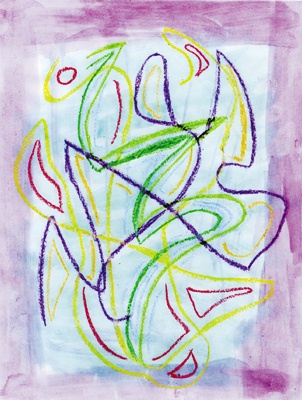All Nonfiction
- Bullying
- Books
- Academic
- Author Interviews
- Celebrity interviews
- College Articles
- College Essays
- Educator of the Year
- Heroes
- Interviews
- Memoir
- Personal Experience
- Sports
- Travel & Culture
All Opinions
- Bullying
- Current Events / Politics
- Discrimination
- Drugs / Alcohol / Smoking
- Entertainment / Celebrities
- Environment
- Love / Relationships
- Movies / Music / TV
- Pop Culture / Trends
- School / College
- Social Issues / Civics
- Spirituality / Religion
- Sports / Hobbies
All Hot Topics
- Bullying
- Community Service
- Environment
- Health
- Letters to the Editor
- Pride & Prejudice
- What Matters
- Back
Summer Guide
- Program Links
- Program Reviews
- Back
College Guide
- College Links
- College Reviews
- College Essays
- College Articles
- Back
Disruption MAG
His shirt, soaked and ripped, clung to his emaciated body. He stood lopsided and staggered forward on the street below the broken traffic light. His body, ashen and half naked, disgusted me, yet I stared with sick fascination.
We sat in the car, my grandfather unaware of the man approaching us. The rain continued to fall, flooding the sidewalks and streaming into the drains. Only the quiet classical music on the radio interrupted the sound of the water hitting the pavement. A Chopin Nocturne - a simple yet haunting lullaby - was playing, and my grandfather was quietly humming. I had heard him speak of the piece. It was a favorite, one he loved as a child. He seemed indifferent to the world around him.
Hollow tapping interrupted the music - the man was knocking on the car window. He was rattling a tin can, I could hear the coins. Both my grandfather and I stared ahead, pretending not to notice. I heard my grandfather lock the doors. The light changed and we sped off. Instinctively, I looked behind, and it was then that I realized the man had one leg. As his outline was swallowed by the fog, I saw my grandfather’s eyes in the mirror, also fixed on the receding figure.
We drove a few miles, the fog so thick that our world had only a ten-foot circumference. The music still played but my grandfather had stopped humming, and he had taken one hand off the steering wheel to fix his bow tie. I heard my cell phone ring - a hollow Hava Nagila - and as I bent to see who it was, my grandfather’s eyes followed me. I felt him take in my pearl earrings, orange skirt tied tight with a ribbon, and Tiffany necklace. He smiled as he swung the car around, making an illegal u-turn.
“What are you doing?” I asked, irritated, but he didn’t respond, and I turned off my cell phone. I recognized the streets as we retraced our route. Soon we were back at the traffic light. The unsettling raindrops disturbed Chopin, its logic and careful order thrown off by the random beat of falling water. My grandfather fumbled, pulling out a five-dollar bill. He held it out to me, his finger on the forehead of Abraham Lincoln.
The crippled man began tapping on the window again. Still not looking right at him, I rolled down the window and handed him the bill. He took it without touching my skin and crumpled it up into the can, but he didn’t hobble away. Instead he peered into the car and I forced my eyes to meet his. His face was contorted and bruised. There was no gratitude in his eyes; they were empty and emotionless, full of a deathly indifference. And then he left, hobbling painfully away.
I stared at my grandfather who, in his white button-down shirt, bow tie, and thick glasses, looked very different to me than he had just minutes before. He said, “There is no one who deserves that.” The expression on his face - part compassion, part anger - is how, to this day, I remember him. We headed home, driving in our private world of fog. It was a long time before he resumed humming the Nocturne.


0 articles 0 photos 12292 comments